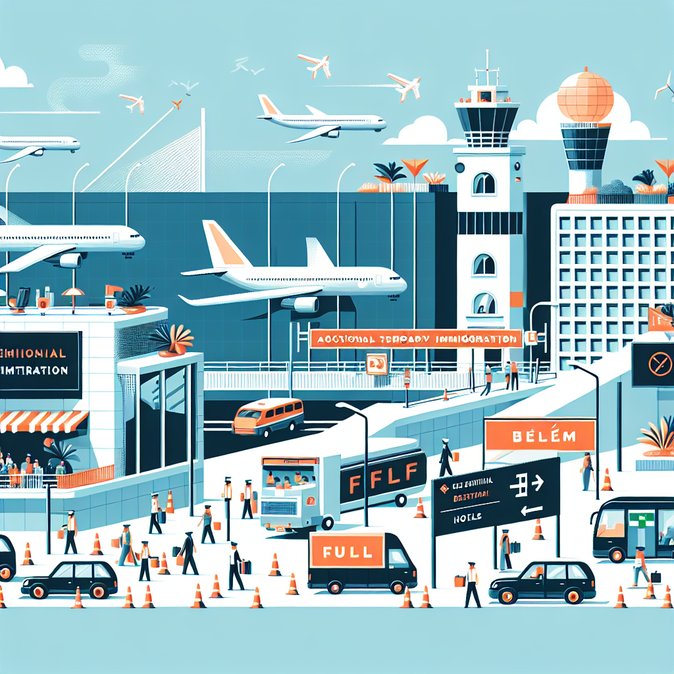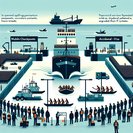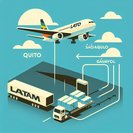
The 30th U.N. Climate Change Conference (COP30) officially opened on 11 November 2025 in Belém, bringing heads of state, CEOs and negotiators from more than 190 countries to the Amazon gateway city. The Lula administration has spent months preparing the city’s Val de Cans airport, port facilities and surface-transport corridors for an estimated 50,000 accredited visitors. In coordination with the U.N. Framework Convention on Climate Change (UNFCCC), Brazil’s foreign ministry rolled out a no-fee electronic visa (e-Visto COP30) that allows multiple entries until 31 December 2025, reducing average visa-processing times from ten working days to less than 48 hours for pre-cleared participants. Airlines have added more than 600 domestic and regional rotations to Belém this month, and hotel occupancy has hit 96 percent.
Immigration booths at Belém and São Paulo Guarulhos have been reinforced with temporary staff drawn from Brasília’s Federal Police academy, and self-service e-gates have been re-programmed to recognise UNFCCC accreditation barcodes. Delegations arriving by charter aircraft are processed in a dedicated terminal, while two cruise ships moored at Belém’s deep-water pier are serving as floating hotels and media centres. Brazilian authorities say the operation is the country’s largest single-event mobility exercise since the 2016 Rio Olympics.
![COP30 Opens in Belém as Brazil Welcomes 50,000 Delegates With Fast-Track E-Visas]()
For corporates, the fast-track visa and upgraded infrastructure offer a real-time test of Brazil’s capacity to stage mega-events outside its traditional tourism hubs. Travel managers should note that while COP30 e-Visas are free, they do not override standard work-authorisation requirements for side meetings that involve remunerated activity. Delegates planning to travel onward within Brazil must also observe the 90-day limit that applies to most visa categories.
Logistics companies report that the Avenida Liberdade highway—built through the rainforest to connect the port and the conference zone—has reduced container-truck transit times by 40 percent, but environmental NGOs warn of lasting deforestation impacts. Civil-society groups have set up kiosks outside the venue to highlight indigenous land-rights issues, but no major security incidents were reported on the first day.
With negotiations on the post-2030 climate-finance goal scheduled for week two, airfares to Belém are expected to remain elevated. Mobility professionals are advising delegates with flexible schedules to route through Brasília or Manaus, where seat availability is less constrained, and to allow extra time for airport transfers as river ferries and road shuttles reach capacity.
Immigration booths at Belém and São Paulo Guarulhos have been reinforced with temporary staff drawn from Brasília’s Federal Police academy, and self-service e-gates have been re-programmed to recognise UNFCCC accreditation barcodes. Delegations arriving by charter aircraft are processed in a dedicated terminal, while two cruise ships moored at Belém’s deep-water pier are serving as floating hotels and media centres. Brazilian authorities say the operation is the country’s largest single-event mobility exercise since the 2016 Rio Olympics.

For corporates, the fast-track visa and upgraded infrastructure offer a real-time test of Brazil’s capacity to stage mega-events outside its traditional tourism hubs. Travel managers should note that while COP30 e-Visas are free, they do not override standard work-authorisation requirements for side meetings that involve remunerated activity. Delegates planning to travel onward within Brazil must also observe the 90-day limit that applies to most visa categories.
Logistics companies report that the Avenida Liberdade highway—built through the rainforest to connect the port and the conference zone—has reduced container-truck transit times by 40 percent, but environmental NGOs warn of lasting deforestation impacts. Civil-society groups have set up kiosks outside the venue to highlight indigenous land-rights issues, but no major security incidents were reported on the first day.
With negotiations on the post-2030 climate-finance goal scheduled for week two, airfares to Belém are expected to remain elevated. Mobility professionals are advising delegates with flexible schedules to route through Brasília or Manaus, where seat availability is less constrained, and to allow extra time for airport transfers as river ferries and road shuttles reach capacity.








